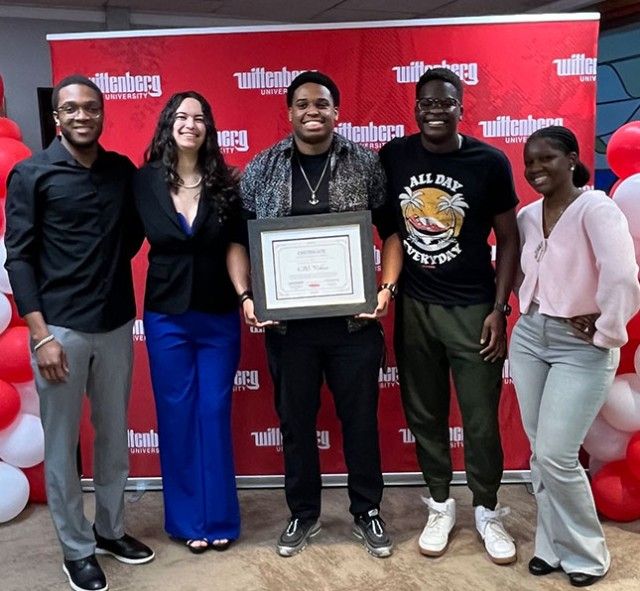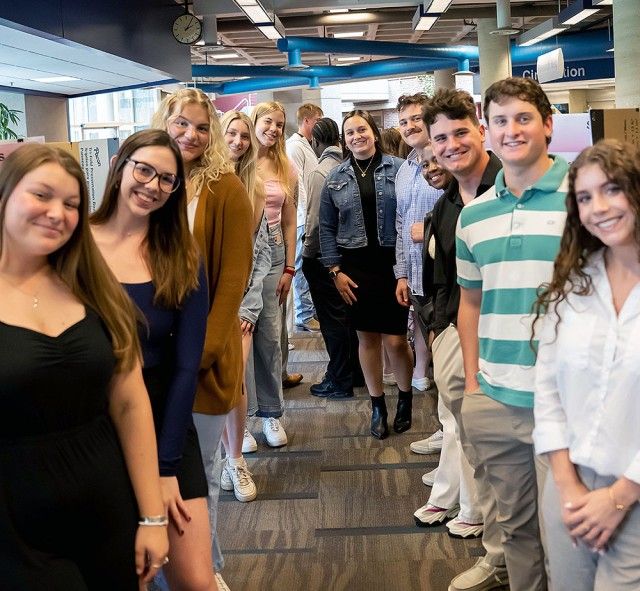With the cancellation of sports due to the COVID-19 pandemic, Wittenberg University’s Department of Athletics and Recreation has taken on a different role on campus this semester. Athletic trainers, coaches, and staff have remained busy supporting health and safety efforts, as well as developing ways to keep student-athletes engaged and prepared for eventual competition.
While still caring for athletes on a daily basis, Wittenberg athletic trainers also become contact tracers for the Clark County Combined Health District (CCCHD) in this time of need.
“Wittenberg has five certified athletic trainers on staff, and four of us became contact tracers. Our fifth helps with day-to-day work for us to contact trace,” said Ellen Crosbie, head athletic trainer and director of sport performance, who is also a member of Wittenberg’s COVID Response Team.
“Greg Schneider, Molly Hopkins, Nathan Ervin, and I contact trace for the Clark County Combined Health District, while Lyndsay Piche works on rehabs and practice coverage for us. Lyndsey is beginning to help us out with contact tracing, too.”
The group participated in 16 hours of training, which included watching a series of videos and PowerPoint presentations followed by shadowing an actual contract tracer to make sure all guidelines were properly carried out.
“We were given the task to be the contact tracers for the Wittenberg student body,” Crosbie added. “We started this in August as everyone was coming back onto campus. During one of our COVID-19 Response Team meetings, the county rep explained about contact tracing and how all of this worked, but no one knew what our needs would be at the time. We asked how could we help. They suggested that with our health care background, we (the certified athletic trainers) would be the best choice to contact trace our students. We can talk through the health care concerns to all involved.”
The Health, Wellness, and Athletics Complex (HWA) has also played in integral role in supporting health and safety on campus. To ensure effective social distancing in every classroom and facility, staff members had to assess all available spaces and adjust as needed to allow for in-person learning. The HWA’s new classrooms have been utilized by various academic departments this semester, the HWA Complex was used to host a mass-testing event with the Ohio National Guard earlier this semester, and the University continues to have a testing center in the connector space between the lobby and The Steemer. In addition to these new uses, the University was still able to offer health and fitness options for students, faculty, and staff, allow select teams to compete virtually with other schools, and maintain a practice schedule for student-athletes while conforming to COVID-related expectations. Staff members AJ Meyer and Mackenzie Moran also helped put together special COVID videos and other special programming for social media this semester.
“Numerous coaches and athletic staff members helped with the mass-testing event that we held on campus in early September with the Ohio National Guard, and many of our coaches have been volunteering their time for the meal-delivery service for those in quarantine/isolation on campus,” said Bret Billhardt, interim director of athletics. “Our coaches and athletic staff members are playing an integral part in keeping our student-athletes engaged during this time. Coaches are having to think extremely outside the box in some of the things they are doing, but each and every one of them should be recognized for the work they put in during this semester to keep their athletes engaged and as active as possible on campus.”
Wittenberg University has long been a pioneer in athletics and recreation, offering as broad-based an intercollegiate athletics program as possible and leading the way in providing competitive opportunities for women. With 25 varsity teams — 12 for men and 13 for women — in addition to numerous club and intramural opportunities, Wittenberg has something to meet every student's athletic and recreational pursuits.







